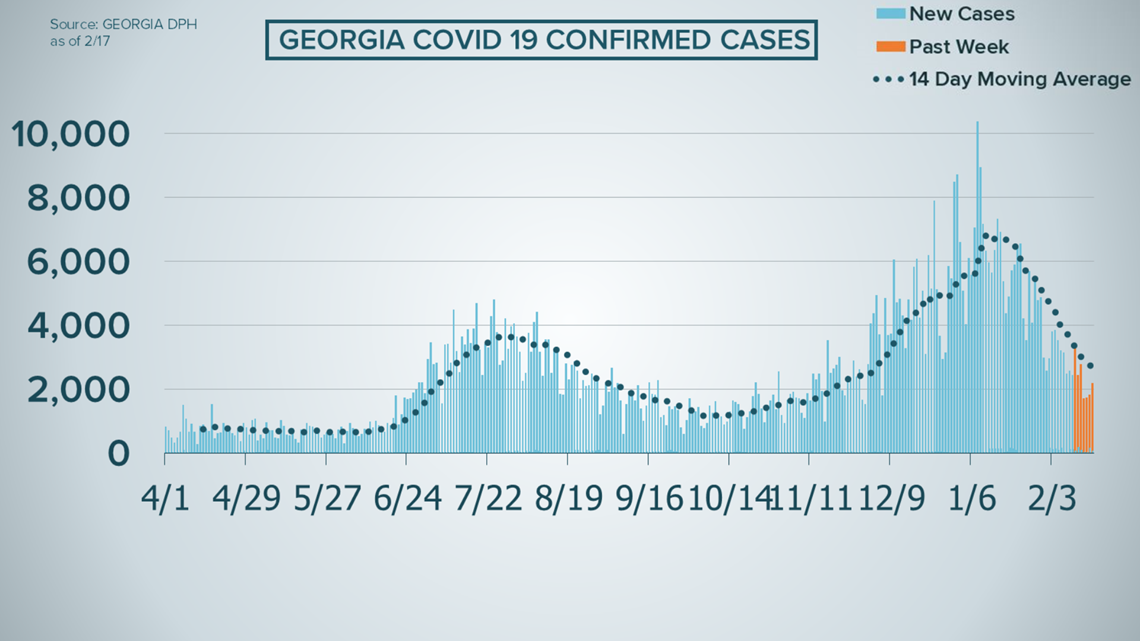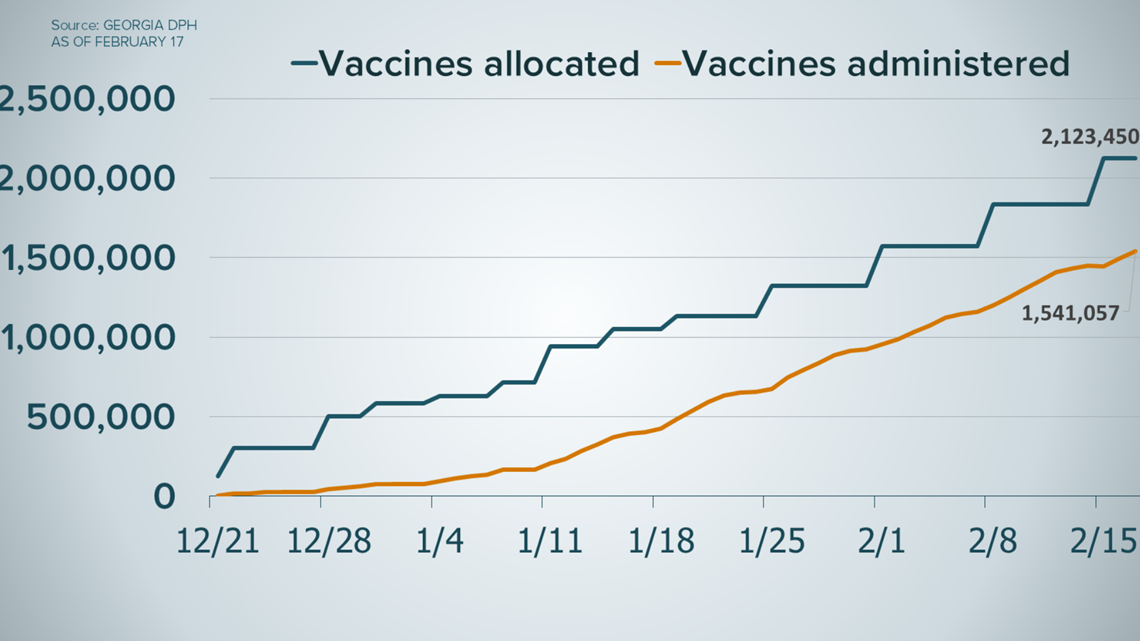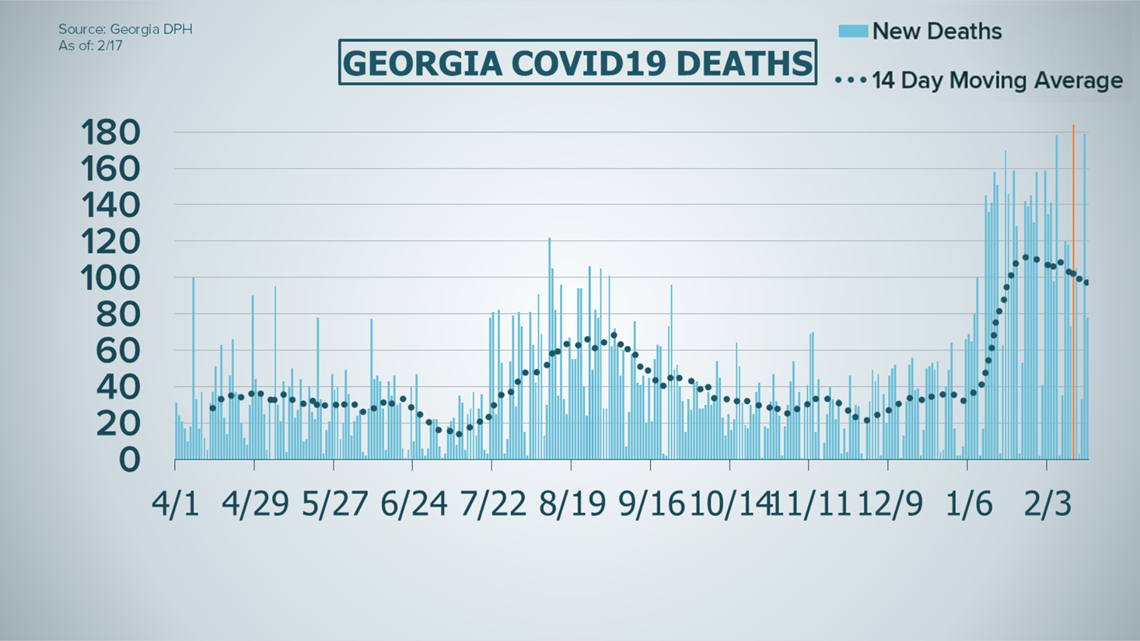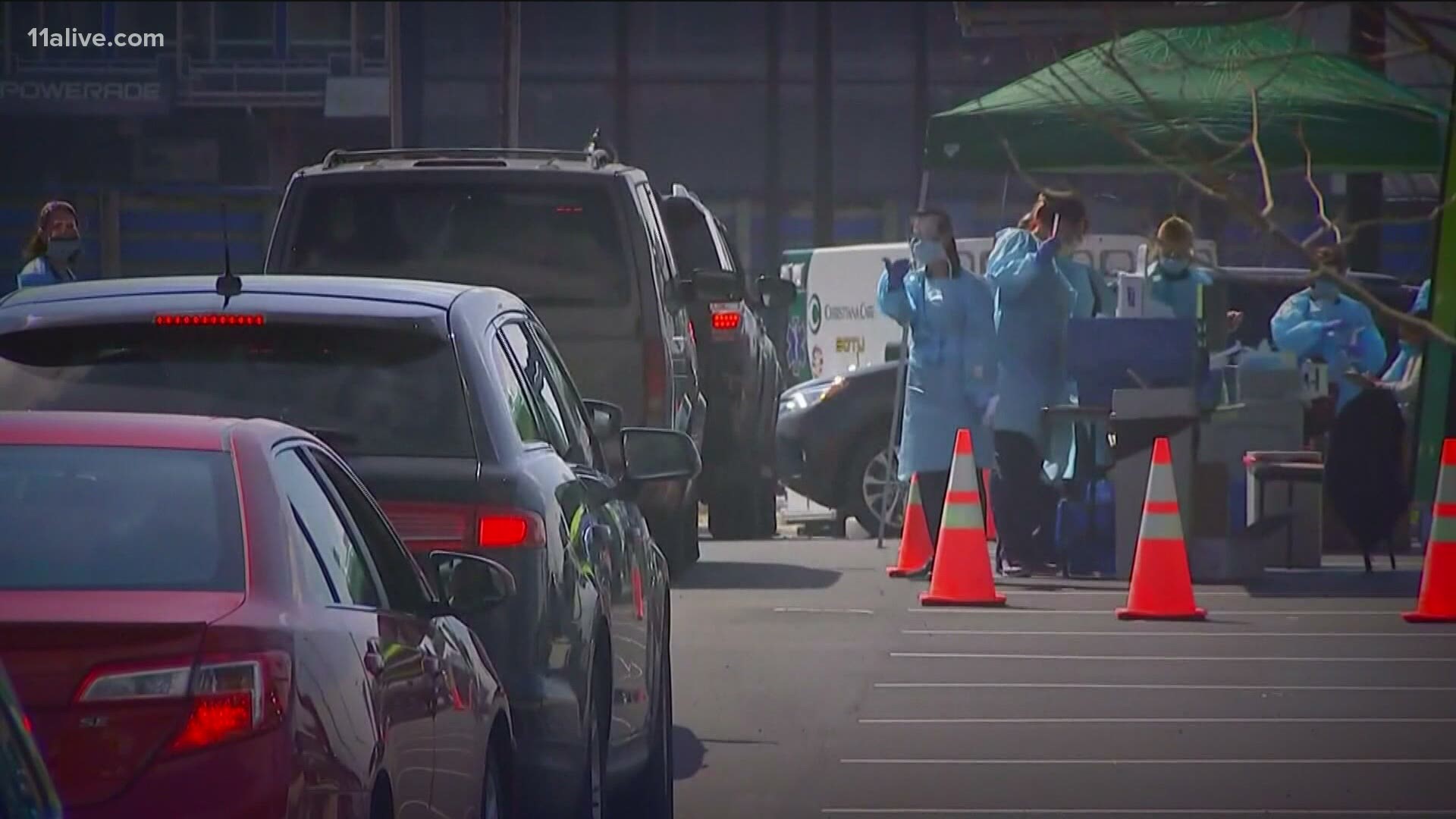ATLANTA — Defying some models, new cases of COVID-19 have been in dramatic decline across the U.S. since roughly the middle of January.
Where experts were once worried about a prolonged surge into the winter months, instead the country appears to be enjoying a sustained receding of the pandemic.
Why is that? And why is Georgia, while broadly reflecting those trends, not seeing the same gains as other states?
The first thing to start with is the numbers themselves. According to data at The Atlantic's COVID Tracking Project site, nationwide the U.S. peaked on Jan. 8 with a one-day case total of more than 312,000. On Jan. 12, the 7-day rolling average of new cases was nearly 250,000.
Rather than plateauing, or experiencing smaller peaks and valleys around that total, the rapid decline in new cases came within days. The 7-day average fell below 200,000 within a week, below 150,000 on the last day of January and below 100,000 last week, with the trends continuing downward this week.
The nationwide rolling average hasn't been this low since October.
According to Department of Public Health figures, Georgia meanwhile similarly peaked on Jan. 8 with more than 10,000 cases and on Jan. 11 its 7-day average was nearly 7,400 new cases per day, before it began falling to the point where it was a little more than 2,300 on Wednesday.


So what makes Georgia different? Things aren't falling as rapidly as in other states.
The latest White House Coronavirus Task Force report shows Georgia's rate of new cases, despite the drop, are still the 12th-highest in the country.
It's hard to pinpoint exactly why cases are falling in the way they have, but there are a number of factors that could explain it, and could suggest why Georgia remains more of an outlier.
Natalie Dean, a biostatistics professor at the University of Florida, explored the phenomenon in a Twitter thread this week and said she felt the likeliest explanation was a mix of behavior change and policy. She ruled out that the bulk of the drop would be correlated with less testing.
Similarly, University of Washington professor Ali Mokdad told The Atlantic: “If I were ranking explanations for the decline in COVID-19, behavior would be No. 1."
The vaccine might seem like a natural explanation, as Georgia has lagged in administering doses roughly equivalent to how it's lagging in bringing down case totals - but experts like Emory's Dr. Carlos Del Rio have cautioned that it's too early to tell what kind of impact the vaccination effort is having.
"There’s some very nice data coming out of Israel, which has vaccinated a fair amount of their population, showing how hospitalizations are plummeting, showing how infections are going down," he told 11Alive's Christie Diez. But that's just one data set, he cautioned.


If behavior and policy go a long way to explaining the drop - people, through individual decisions, and governments, through collective decisions reacting to more severe case totals - the inverse can be true: It's possible Georgia is lagging behind other states because it has not had as aggressive a mitigation policy or people have not as significantly altered their daily behavior.
It's also possible Georgia may just need to catch up - the nationwide surge began in earnest roughly in the middle or toward the end of October, and Georgia didn't really spike until a week or two into November.
In the meantime, the state remains in concerning territory: Test positivity and hospitalizations are down but, as with cases, not dropping as rapidly as in other states. Georgia ranks eighth for highest test positivity and fifth for new hospitalizations.
Worst of all, deaths continue to be elevated, with no noticeable decline to this point. The state saw its second-deadliest day of the pandemic this week, and deadliest the week before. Among states, Georgia has the sixth-highest rate of new COVID deaths being reported.


So while there's good news about the state of the pandemic in national headlines, and while there are positive indicators in Georgia, it doesn't fully reflect that there's still some catching up to do.

